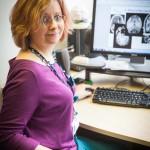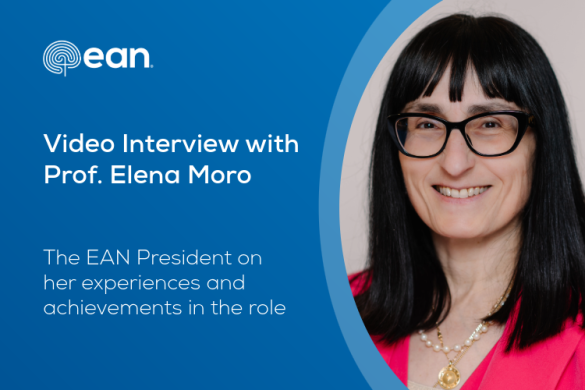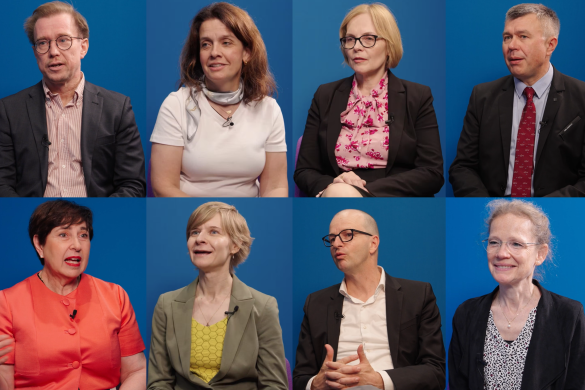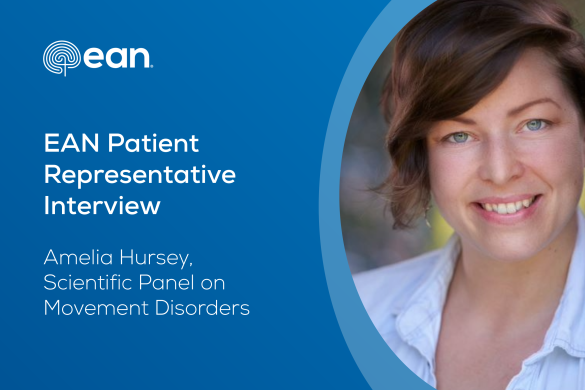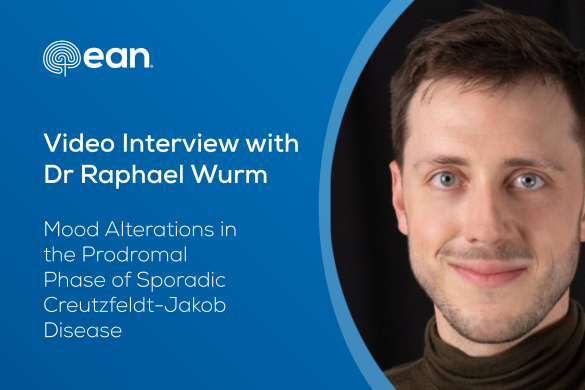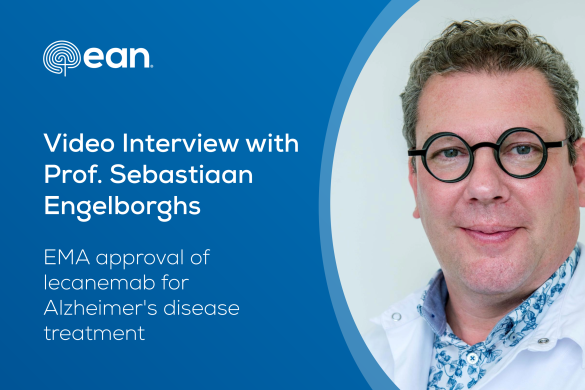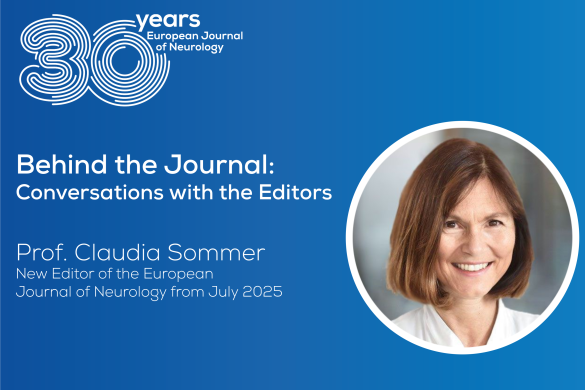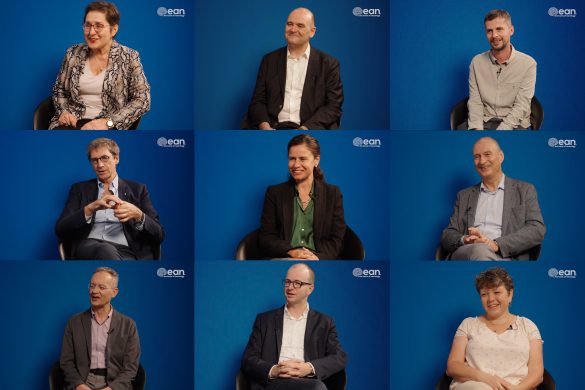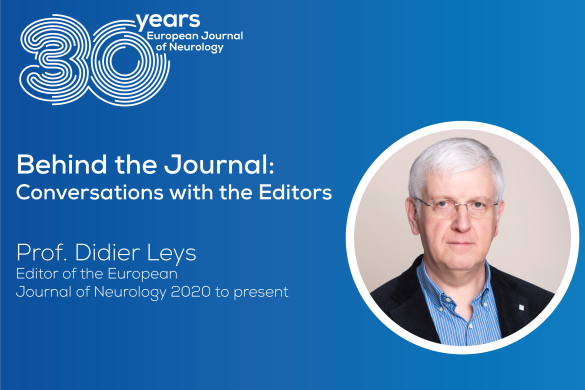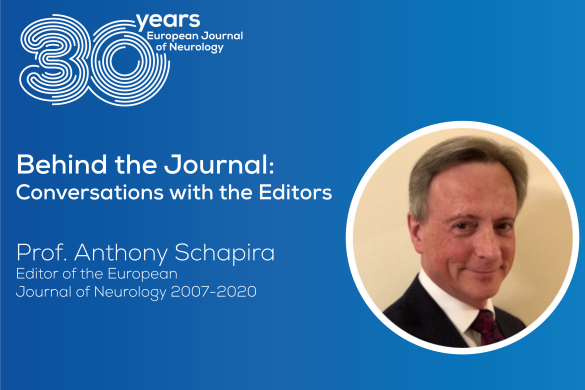Elena Moro (EM): As Chair of the Education Committee, can you illustrate the role you give to EAN within the community of European neurologists?
Hannah Cock (HC): I see my role as leading on the Educational Strategy of the EAN, and overseeing the delivery of educational activities to support this, in parallel with ensuring robust quality assurance mechanisms are in place. Education underpins much of the EAN vision, and is also a substantial component of the annual budget so this is a role I take very seriously, working closely with my colleagues on the board and of course the committee and subcommittees. There are several defined tasks relating to the annual congress, regional teaching courses, and the recently re-launched (and we hope revitalised) clinical and research fellowship programmes, and liaising with UEMS and EACCME with respect to accreditation and the European Board of Neurology Exam. I also have a specific interest in ensuring we future proof to meet the evolving needs and demands of European neurologists as learners, which increasingly means developing e-learning, interactive/skill based formats, and ensuring we cover not just neurological topics, but also those with a broader remit such as in relation to publishing, grant writing, guidelines and regulations, and education itself.
EM: Can you share your view on how the EAN congress may integrate working with related specialties such as on epilepsy, stroke, multiple sclerosis, and movement disorders, without duplicating news and messages?
HC: This is something being dealt with at a board level, to guide the activities of all the committees and ensure we are all speaking with one voice. Clearly there are areas of potential overlap, but we anticipate having organisation-specific agreements which include defined responsibilities/expectations for both EAN and the speciality organisations. This model has already worked well for some years with the Movement Disorder Society, and work is now in progress with others also. Many neurologists, including myself will be members of both EAN, and their appropriate sub-speciality organisation, and have different needs/expectations form each – I might get much of my epilepsy news elsewhere, but certainly depend on EAN to ensure I am also informed about the broader context and other disease areas which is equally important.
EM: EAN aims to be the overall umbrella for neurology and neurology related specialties. How can your specific work on epilepsy bring an added value to this aim?
HC: In the same way that epilepsy experts are dependent on an understanding of the broader neurology context, equally EAN is dependent on expertise from epilepsy specialists to guide our own work. Specifically to ensure key clinical, scientific or educational messages of relevance to a general audience are appropriately communicated. My particular interests in status epilepticus and functional non-epileptic attacks also mean I have links with other areas including emergency medicine and neuropsychiatry, both of key importance to delivering safe and effective neurological care.
EM: What is your view on the future of the educational grants for young neurologists allowing them to visit and work in different neurological departments throughout Europe?
HC: I hope that our recent launch of the new clinical fellowship and research fellowship schemes illustrate this is an area the education committee, and EAN board are fully committed to continuing. The funding for research fellowships is unchanged, and although we are offering fewer clinical fellowships than under the previous department-department exchange programme, this decision has been made to optimise the quality and value of the experience, in parallel with a more transparent and objective selection process and sufficient funding to cover expenses, and not preclude those with minimal personal funds from benefiting. This is especially important at a time when many parts of Europe are under considerably financial pressures. will be more consistent for both hosts and fellows.
EM: Can you share with our readers your vision on how Neuropenews can help strengthen EAN’s identity?
HC: Again this is work that is I think already very much in progress. You as new editor have regular contact with the board, and have already identified key links for the various committees, and you are developing a clear understanding of the EAN vision. You are also already working very closely with the website editor Tim Von Oertzen, and I have every confidence in both of you that over time the news blog and website together will become central portals that all European neurologists instantly recognise and rely on.
Hannah Cock is a consultant neurologist at St George’s University Hospitals NHS Foundation Trust, and Reader in Clinical Neurology at St George’s, University of London. She is Chair of the EAN Education Committee.

